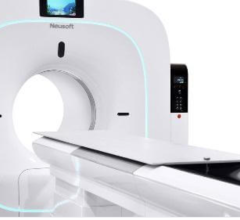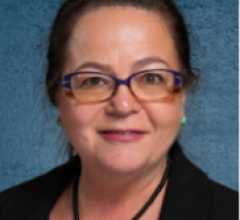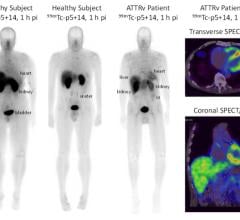
April 8, 2011 – The U.S. Food and Drug Administration (FDA) has cleared a next-generation compact gamma camera. MedX’s T-Quest includes enhanced thyroid imaging and features expanded imaging capabilities to perform parathyroid, sentinel node, MUGA, gastric emptying, hepatobiliary, bone spots and other small organ studies.
The company also announced the first installations for the device at two leading acute care hospitals, Meritus Medical Center in Hagerstown, Md. and St. Barnabas Medical Center in Livingston, N.J.
The image quality and low lifetime system cost, offers medium to large hospitals and imaging centers a cost-effective tool to expand volume, improve efficiency and provide quality patient care.
Commercially available worldwide, the camera provides high-quality imaging capabilities and the freedom to perform long duration time/activity studies. Its minimized focal distance and mm/pixel ratio maximizes diagnostic quality through improved image resolution. The results of this combination are increased operating efficiency, better imaging economics and improved diagnostic results.
It requires less than 8 square feet of floor space, and features a 6-inch field of view and lightweight collimators, which are easily changed by hand. Its unobtrusive design promotes patient comfort and is non-claustrophobic.
The system works in conjunction with the NuQuest acquisition and processing computer, providing a comprehensive, standalone system. The onboard NuQuest computer provides state-of-the-art energy, linearity and uniformity corrections for superior image quality. The software features customizable imaging acquisition protocols along with a host of general nuclear image processing tools. It also features an intuitive user interface with simple pull-down menus and features DICOM 3.0 print, file export and modality worklist capabilities.
For more information: www.medx-inc.com


 July 30, 2024
July 30, 2024 








